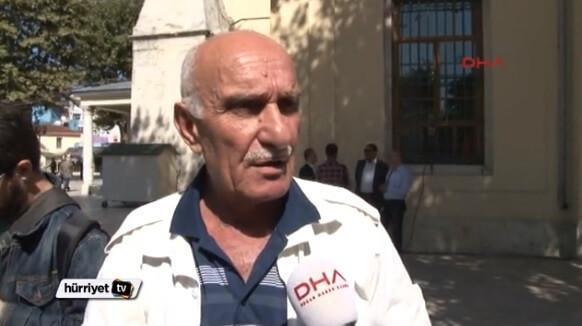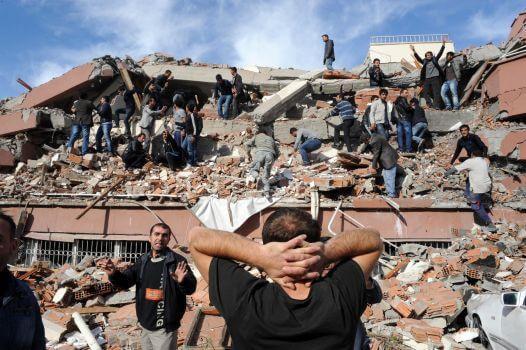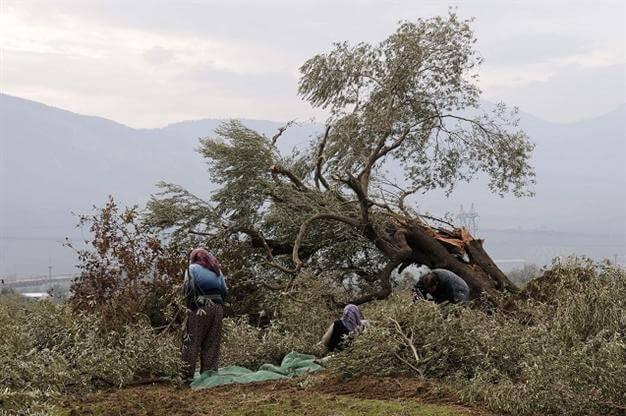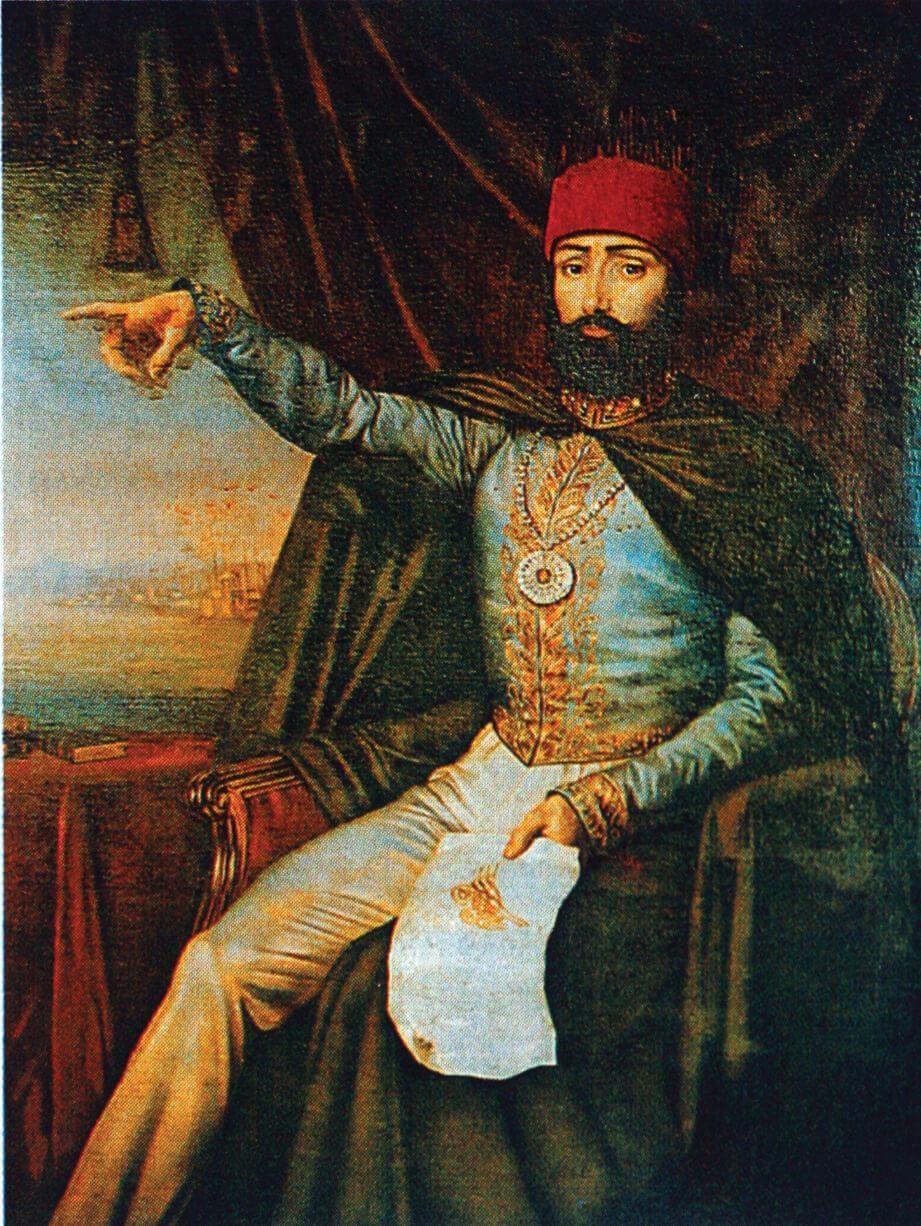New Turkey seizes private property like old Ottomans

“I don’t want to sell my house. Wasn’t property considered sacred?” an angry local named Hasan Özdoğan had told a Doğan News Agency correspondent in September 2014, after he furiously reacted to the mayor of Istanbul’s central Beyoğlu district, whom he coincidentally ran into during a funeral.
Hasan Özdoğan
Özdoğan was claiming the municipality, whose mayor is from Turkey’s ruling Justice and Development Party (AKP), expropriated his house against his will, paying a price much lower than its real value. After four years of legal efforts, he failed to stop the expropriation. The municipality, which controls some of Istanbul’s highly lucrative areas of urban transformation, “did it for money and to take away the house,” in Özdoğan’s own words.
Controversial practices of expropriation or confiscation of private property can be seen in any country and at any time. For example “Leviathan,” a Russian film considered a favorite at this year’s Oscars, is about a small town mayor who deprives the film’s hero of his property. However, director Andrey Zvyagintsev says the story was inspired by the real-life drama of Marvin Heemeyer in the United States.
The mayor of Beyoğlu, still popular even after the Gezi Park protests in 2013, as seen by his re-election in the March 2014 local polls, has nothing to do with the fictional tyrant in “Leviathan.” On the contrary, he is the smiling face of an increasingly oppressive system, which is a unique product of Turkish democracy.
Milestone of urban transformationThe Turkish government’s moves against private property have dramatically increased since the mid-2000s, around the same time when the halt in its EU drive turned into a rewinding of previous democratic reforms.
For instance,
a lucrative urban transformation project forced Istanbul’s Roma community out of their historic neighborhood in 2007. Similar legal challenges were observed in
many other urban transformation zones.
The 2011 earthquake in the eastern province of Van served as an excuse for the government to adopt a draconian measure to bypass the courts.
City of Van
The government’s “rapid expropriation” right, normally reserved for emergency situations such as natural disasters or war,
began to be exercised more frequently. Recently, many such decisions have blatantly violated individuals’ rights or harmed the natural environment and local history.
The landmark case in recent memory is
the felling of thousands of olive trees in the Aegean town of Yırca in November 2014. The government sided with the energy company that had won the tender to build a coal plant partly on the olive groves, instead of the villagers who were beaten by security guards.
Their olive trees were gone, but villagers were still happy when Turkey’s
Constitutional Court annulled a key article of the law stipulating that citizens whose properties are expropriated could not sue the administration or demand higher compensation through lawsuits. Then, later in 2014, the
Council of State dismissed the cabinet’s rapid expropriation decision in Yırca.
Village of Yırca
Neither the citizens’ legal objections nor their upholding by the top courts against the administration’s arbitrary decisions are rare exceptions. Both of them are the direct consequences of the 200-year-old history of Turkish constitutionalism.
Historical prophecies
Arbitrary moves against private property can be seen as one of the moves that corrupted the Ottoman system. From the 16th century,
müsadere (confiscation) was used by several Ottoman sultans pragmatically for many reasons, such as eliminating political opponents, controlling capital accumulation, quelling dissent or financing costly wars.
Although it was beneficial for the sultan in the short term,
müsadere ultimately contributed to the fatal decadence of the Ottoman political, economic and social system. It is no coincidence that Sultan Mahmud II abolished the practice in 1839 with the Edict of Gülhane, which vied to reorganize the state with Western-inspired reforms. Safeguarding private property was one of the key elements of the edict.
Sultan Mahmud II
The Turkish government’s recent moves reminiscent of
müsadere should be a matter of concern for all democrats in Turkey, but I believe they are doomed to fail, considering the historic depth of the institutions and public awareness that still counter them.
Let me remind you, even the modernizing Sultan Mahmud II had once used massive expropriations for political reasons. He disbanded the Janissaries, who once served as his shock troops, and confiscated all their property in a bloody operation in 1826. In only 13 years, however, the sultan had to surrender to internal and external pressures for constitutionalist reforms, relinquishing his absolute authority over private property.
The Turkish
state seizing control of Bank Asya late Feb. 3 can be seen from this perspective.
This Islamic bank is widely considered the financial hub for the followers of U.S.-based Islamic scholar Fethullah Gülen, the
ally-turned-nemesis of Turkish President Recep Tayyip Erdoğan. In fact, both of these figures were present at the inauguration of the bank in 1996, posing happily for the camera (below).
Many
analysts see the seizing of Bank Asya as a political move, as it was legitimatized by Turkey’s Banking Regulation and Supervision Agency (BDDK) “because the institution has not presented a partnership structure that is transparent and open enough to allow for effective regulation.”
However, nothing recently changed in the partnership structure, which had been previously approved by the BDDK itself. The only factor that changed was the political landscape, after the Erdoğanist-Gülenist coalition spectacularly collapsed into war in December 2013.
Society in a pressure cooker
As Hürriyet columnist
Taha Akyol recently put, “politics should avoid bending and damaging institutions.” I believe the damage to Turkey’s institutions due to government policies, such as arbitrary expropriations and similar ventures, will not be lasting as long as internal and external factors provide that it is repaired in the long term.
I am more concerned about the short-term social consequences of such attempts. Such practices undermine the public confidence in the rule of law, while discouraging entrepreneurship and innovation.
Oppression can only reinforce, diversify and even radicalize the opposition, which may create exponentially more dangerous threats against the dominating power. Such policies affect and transform not only the structure of political organizations, but also the psyche of the man in the street.
“Should we sell Bonzai [an illegal drug] or start a revolt in the mountains instead to earn a living?” a woman asked rhetorically as security forces were demolishing roadside stalls selling peaches grown in the western Turkish province of Bursa in July 2014.
She sounded as furious as Istanbul resident Özdoğan, who questioned if property is still considered “sacred” in Erdoğan’s New Turkey.
 “I don’t want to sell my house. Wasn’t property considered sacred?” an angry local named Hasan Özdoğan had told a Doğan News Agency correspondent in September 2014, after he furiously reacted to the mayor of Istanbul’s central Beyoğlu district, whom he coincidentally ran into during a funeral.
“I don’t want to sell my house. Wasn’t property considered sacred?” an angry local named Hasan Özdoğan had told a Doğan News Agency correspondent in September 2014, after he furiously reacted to the mayor of Istanbul’s central Beyoğlu district, whom he coincidentally ran into during a funeral. 




